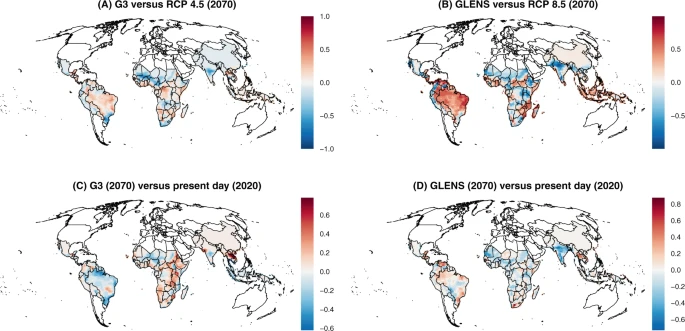Phys. org April 20, 2022
Solar geoengineering is often framed as a stopgap measure to decrease the magnitude, impacts, and injustice of climate change. However, the benefits or costs of geoengineering for human health are largely unknown. An international team of researchers (USA – Georgetown University, University of Maryland, Rutgers University, University of Florida, Bangladesh, Germany, South Africa) has
projected how geoengineering could impact malaria risk by comparing current transmission suitability and populations-at-risk under moderate and high greenhouse gas emissions scenarios with and without geoengineering. They showed that if geoengineering deployment cools the tropics, it could help protect high elevation populations in eastern Africa from malaria encroachment but could increase transmission in lowland sub-Saharan Africa and southern Asia. Compared to extreme warming, they found that by 2070, geoengineering would nullify a projected reduction of nearly one billion people at risk of malaria. Their results indicated that geoengineering strategies designed to offset warming are not guaranteed to unilaterally improve health outcomes and could produce regional trade-offs among Global South countries that are often excluded from geoengineering conversations…read more. Open Access TECHNICAL ARTICLE

Impacts of solar geoengineering on malaria transmission. Credit: Nature Communications volume 13, Article number: 2150 (2022)